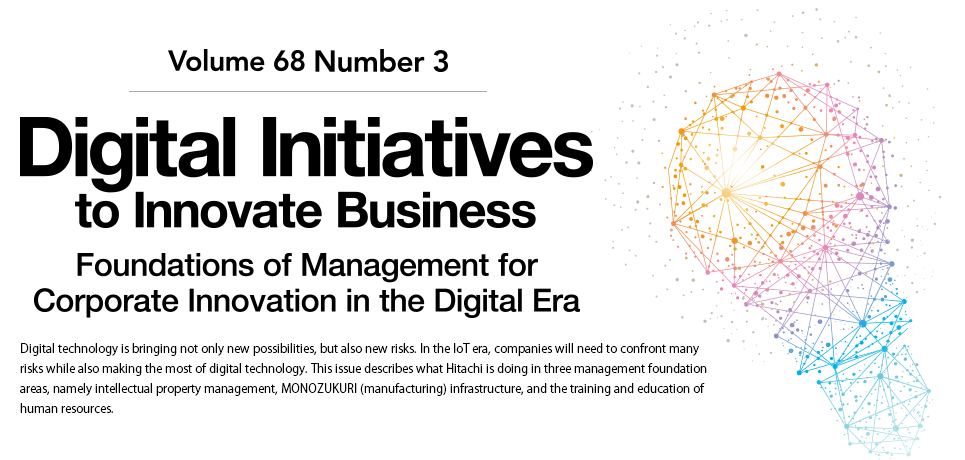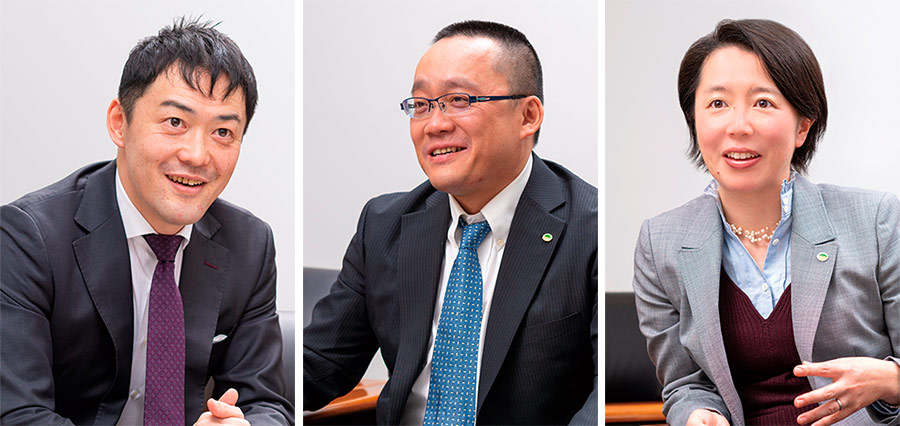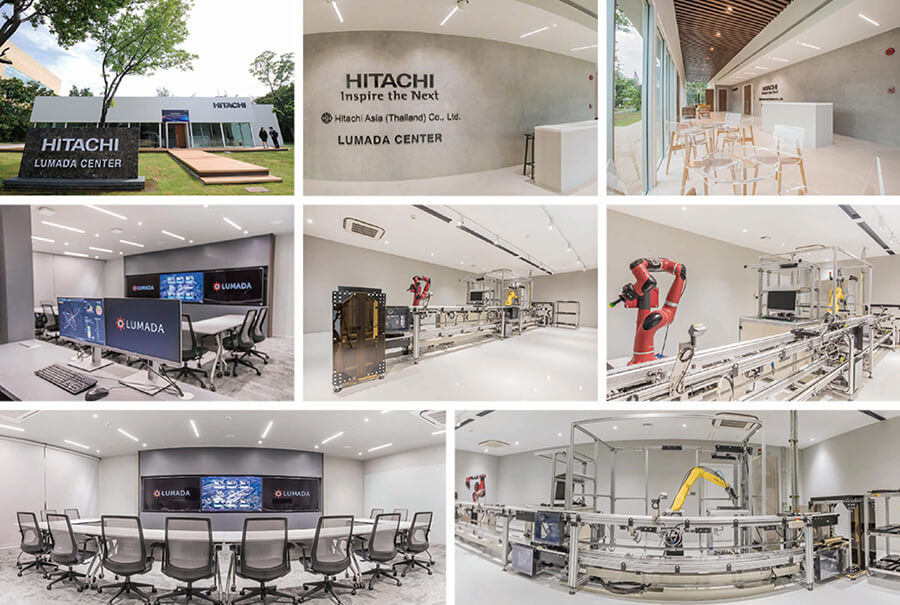
Digital technology is bringing not only new possibilities, but also new risks. In the IoT era, companies will need to confront many risks while also making the most of digital technology. This issue describes what Hitachi is doing in three management foundation areas, namely intellectual property management, MONOZUKURI (manufacturing) infrastructure, and the training and education of human resources.


Amid rapidly changing consumer values brought by the momentum of digitalization, companies are faced with a situation that diverges from the current business models and past practices. Kenichiro Senoh, Director and CEO of the Industry-Academia Collaboration Initiative, gives his views on the background of the paradigm shift and the management fundamentals.

As globalization and digital innovation accelerate, management reform is becoming an urgent issue for companies. What sort of innovations are needed to turn macrotrends and the changing business environment in which companies operate to their own advantage? Key people in the fields that are the foundations of management share their visions and actions.

Intellectual property strategy is undergoing major changes under the diversification and complexity of the business environment and relationships with customers and other partners accompanying digitalization. Makoto Kobayashi, who has worked in intellectual property consulting, talks about the intellectual property strategy in corporate management.

How to feed back the results of advanced analysis to the real world is the key to making use of vast amounts of data for solving social problems. Google provides many services globally. Masanori Satoh from Google Cloud in Japan talks about the new forms of system development associated with such subjects as “openness” and “safety and reliability.”


In 2018, the Thai government launched its Thailand National Strategy (2018-2037) that runs in line with Thailand 4.0 and the Eastern Economic Corridor project, which are aimed at bringing Thai society into the digital world and achieving more advanced living standards. Hitachi Asia (Thailand) Co., Ltd. reports how Hitachi will contribute to Thai society.

The scope of intellectual property is expanding to encompass resources such as data, software, and trade secrets as well as intellectual property rights, especially patents. IP activities in this sense have been continuing to grow in importance, including the promotion of open innovation that draws on these resources. This section presents an overview of Hitachi’s IP activities and describes new activities being undertaken in readiness for digitalization and openness.
Hitachi is seeking to establish flexible MONOZUKURI (manufacturing) operation practices that provide flexibility in where to conduct design and production work across its manufacturing operations that extend globally, engaging in company-wide activities for strengthening MONOZUKURI capabilities. This section describes Hitachi’s MONOZUKURI operation practices that utilize digital transformation, including the strengthening of core manufacturing technologies and human capital development.
Achieving worldwide growth in Hitachi’s Social Innovation Business requires working to solve social issues that are discovered through communication with customers and users. A crucial requirement here is developing human resources capable of providing digital transformation. This section looks at Hitachi’s corporate-led group-wide activities, and human resource development and training activities that will reorganize its structure.